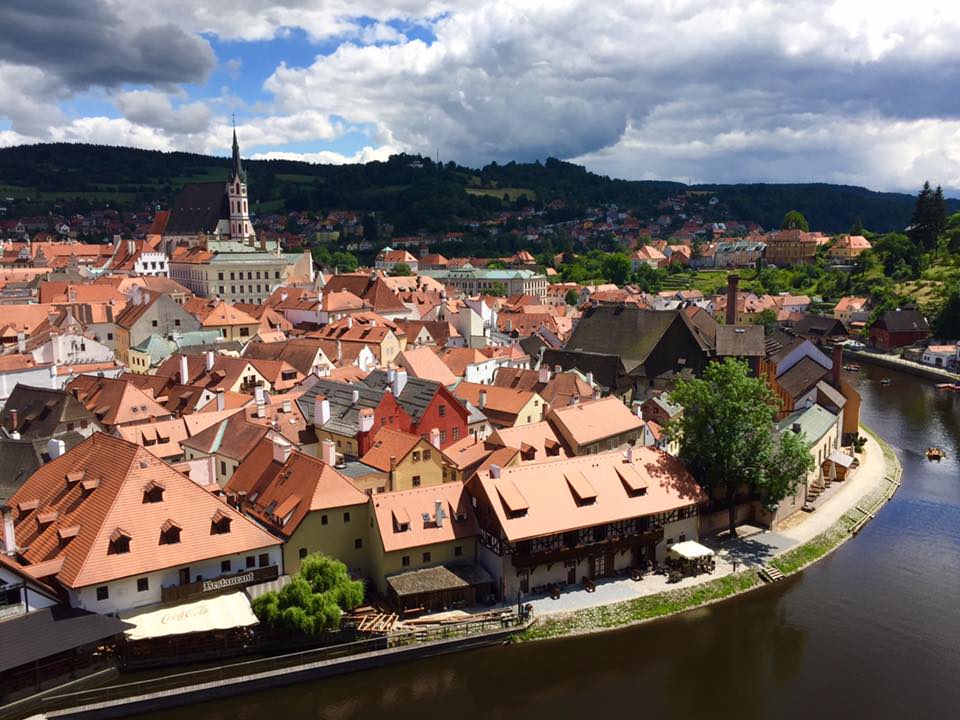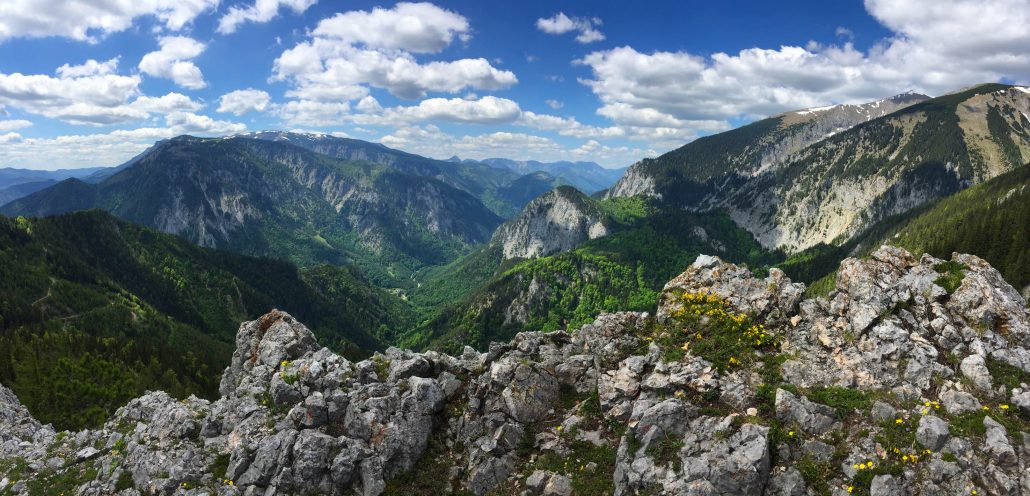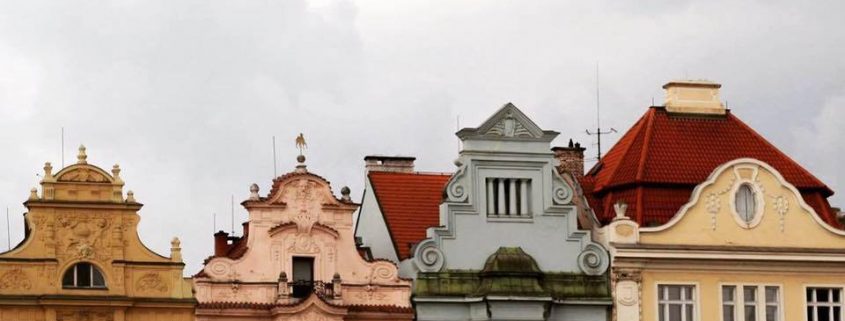By Dr. Lauren Des Marteaux, Postdoctoral fellow, Biologické centrum AVČR
———
No one would describe me as having wanderlust; I am a nester, molding my surroundings for maximum comfort, convenience, and aesthetics. I loved my historic apartment, my extensive set of kitchen gadgets, and all of Canada’s familiarities (AKA Tim Horton’s everywhere, anytime). As a fresh post doc I had no idea what to expect when relocating from populous southern Ontario to a dorm room with a shared kitchen in small-town Czech Republic. Now (six months later), the only way to describe my time abroad would be overwhelmingly happy.

This positive perception of my experience may be, in part, reflected by my state of mind at the time of departure – I was READY. As expectations of North American graduate students increase in the competitive academic market, the capacity for work-life balance continues to diminish. I had just completed a Ph.D. after 4 years and 3 months, during which I could not truly enjoy evenings and weekends away from work without a nagging sense of anxiety and guilt. My to-do list rarely dropped below 20 items, and I was both mentally and physically tired. Even after completion, the environment in which I took on the degree was saturated with memories, both good and bad. If one has a particularly stressful time in graduate school, these ‘residuals’ can result in perpetual blues.
Moving to a completely new environment was therefore like a bath for my psyche. Everything is fresh and untainted by recollections of stress.

Life after a Ph.D. feels—dare I say—almost like vacation. The pace of work in Europe is relaxed, and time itself moves more slowly when everything is new; new surroundings to explore, new languages to learn, new people to meet. The Czech Republic bubbles with deep history, and the colourful, winding cobblestone streets of the medieval town centre are a treat to wander. I have turned my dorm room into a cozy nest, and hunted down all my essential kitchen gadgets. I walk or bike instead of driving, I hike in beautiful forests or hillsides every weekend. I am mere hours away from Vienna, Prague, Budapest, and Berlin by train, short flights away from everywhere else, and you can be sure that I am taking advantage of it.

Apart from a great project, my motivation for accepting this post doc was to enhance my opportunities to travel, expand my professional network, and truly live in a new country (plus it didn’t hurt to put a few extra miles between myself and the current U.S. president). Now, I was aware that salaries in the Czech Republic are modest – perhaps one quarter of the rate one might earn in most western countries. However, my inexpensive dorm, cafeteria lunches at only $1 per day, and lack of car leave me with more-than-sufficient earnings for play, travel, a personal trainer, weekly massages… Even if salaries here are low, I was surprised to find that my new lab and department appear better-equipped than most Canadian labs I’ve toured (I seem to have more microscopes, thermocyclers, incubators, and pipettes than I know what to do with!). And, as luck would have it I got along swimmingly with my Czech lab mates and supervisor who have been incredibly kind, inclusive, and constantly plan activities to help me get the best out of my time here. Last week we spent three days in Moravia sampling wines, and next week we will partake in the annual St. Martin’s goose feast.

Lab Manager Jája Korbelová (left) teaching me to pick the perfect rosehip
Of course, living in a new country is not without some difficulties, and what has been (and continues to be) an overall wonderful experience for me may be nothing less than demoralizing for another. Language barriers can leave some feeling isolated, frustrated, or otherwise less capable of operating in their new environment. Not only is Czech a grammatical nightmare compared to English, the vocabulary and pronunciation bears little resemblance (unlike, say, German). As a foreigner, every task takes more time to complete, and attempts to communicate with non-English speakers may be met with blank stares. I’ve even had to learn how to bake all over again given differences in ingredients and equipment. Cultural differences can also be shocking; xenophobia and sexism in the Czech Republic are less-than-subtle compared to Canada.
Ultimately, your attitude will determine how you fare abroad. I consider most challenges stimulating, fun, and a great opportunity for me to grow as a person. I laugh at the blank stares from store clerks and the sometimes crazy cafeteria lunches (you might get half a chicken, you might get four donuts). I adapt and improvise when my familiar culinary products aren’t available. I shrug off the weird bureaucracies, sluggish trains, and occasional indoor smoking—after all the country is still transitioning from a communist past, and that makes living here all the more interesting to me. Exposure to new ideas and perspectives, whether or not you agree with them, is always valuable. Learning even bits of a new language is rewarding and empowering, especially when you nail those little interactions at the grocery store and earn a smile from an appreciative local. Remember that your time abroad is (likely) temporary, and that these challenges are often insignificant in the grand scheme of life. Remember to reach out to your support network in trying times; friends and family of a common culture do wonders to keep you sane. And remember that money isn’t everything; you may be lucky to work or study abroad while earning enough to save—if not, you are still banking those invaluable, enriching experiences that make life worthwhile.

Lunch, on one of the more unusual days
Are you a Canadian resident spending time abroad to conduct entomological research, or are you coming to Canada for the opportunity to study? If you’d like to share your story and experiences as part of the Foreign Perspectives series, please get in touch with us by email.
This post is also available in: Français






